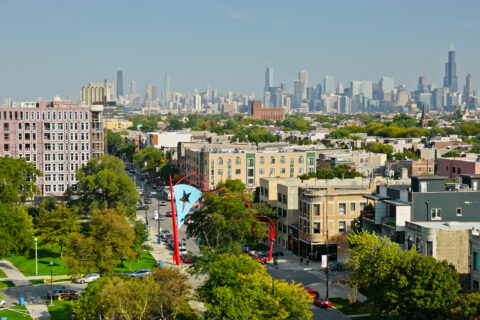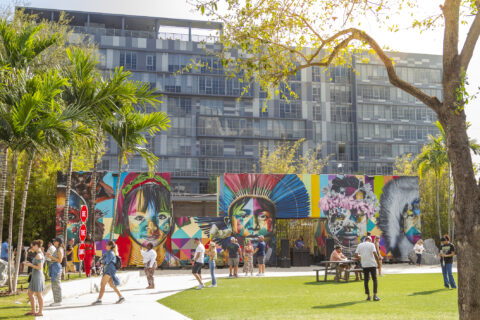COVID-19 continues to spread across the country. More than half of the states are seeing persistently higher numbers of new cases. Cities and states that have flattened the curve have new surges in certain neighborhoods (e.g., New York City, New Hampshire). Now, as at the beginning of the pandemic, everyday health practices continue to be the most effective measures that each person can take to prevent and contain infections. Universally practiced within a state or municipality, these practices allow the community to get back to business in a staged, safe manner:
- Wear a face mask in public – especially where physical distancing is hard to maintain.
- Watch your distance – Stay at least 6 feet away from people who are not part of your household.
- Wash your hands often – with soap and water for at least 20 seconds each time; use hand sanitizer if soap and water are not available.
Face coverings are one of the most powerful weapons against the spread of COVID in communities of all sizes, and among people of all ages and race and ethnic groups. Real world studies have shown that mask mandates in 15 states and the District of Columbia led to definitive slowdowns in COVID growth rates. Universal face masks, appropriately worn, are 60-80% effective against the spread of COVID-19. A World Health Organization backed study noted it may reduce spread by more than 80%.
The use of face masks can speed a municipality’s path to opening business and its residents back to activities they enjoy, and local elected officials have an important role to play.
Yet a recent Pew Research Center survey shows significant differences in using face masks across political affiliations and racial and ethnic groups. The use of face masks can speed a municipality’s path to opening business and its residents back to activities they enjoy, and local elected officials have an important role to play.
- Get the message across that we are all in this together: Each person has the responsibility to protect themselves, their families, and their communities.
- Provide information on the effective use of face masks: Use CDC’s easy-to-follow guidelines and graphics on Use of Masks to Help Slow the Spread of COVID-19.
- Model wearing face masks and safe health practices.
- Pass a face mask ordinance in City or Town Council, mandatory if feasible per local politics and culture.

Face Mask Ordinances
Jurisdictions of all sizes have implemented mask ordinances – both mandatory and voluntary. Key elements are:
- Why wearing masks is important, and dates/times the ordinance is in effect;
- Recommendations of types and proper wearing of face masks;
- Locations/circumstances, exemptions, enforcement (e.g., fines ranging usually from $15 to $50)
- Frequently Asked Questions
- How to get face masks (the city may make free masks available)
- Printable flyers, posters for businesses to distribute and post
Face mask ordinances span across cities large and small. The cities of Columbia, MO, Charleston, SC, Hays, KS, Kent, OH and San Francisco have user-friendly FAQs on their mask ordinances. Burleson, TX and Minnetonka, MN provide guidance and printable flyers for businesses. Cayce City, SC updated their mask ordinance to include public schools. Norman City, OK provides guidance, business resources with printable signs, and a data dashboard. The local ordinance of Brookhaven, GA requires all entities who opt out of the enforcement of this ordinance to post a clearly legible sign at all public entrances of such entity stating: “This location does not consent to the enforcement of any local face-covering requirement upon this property.”
At a recent meeting of the Small Cities Council, elected officials noted the importance of mask mandates at the state level for consistency of guidance and to reinforce the messaging to keep everyone safe:
“Our Governor talks about face masks and wears it himself, but is reluctant to impose a statewide mandate. The majority of cities in South Carolina proceeded to put ordinances into place. Now he supports municipalities’ right to do so.” – Mayor Alfred Mae Drakeford, City of Camden, South Carolina
“I work in health care, and we have a large university in our area. When school started, it was soon reinforced that ‘we’re all in this together.’ Breakouts in high school and college lead to breakouts in long-term care facilities because they are often so dependent on employees who are also students. We’re all connected – when students get sick, more employees get sick – and that puts some of our most vulnerable community members, long-term care residents, more at risk of getting sick.” – Mayor Nathan Johnson, Yankton, South Dakota
Encouraging Adoption of Face Masks
The communications and persuasive power of local officials are crucial to promote and expand the use of face masks. Enforcement of mask ordinances is difficult and further stretches city officials’ time and limited resources. Local officials’ capacity to build a sense of community and mutual responsibility can increase the number of people who wear masks. The more people who do, the more it normalizes this behavior across the community.
Local officials’ capacity to build a sense of community and mutual responsibility can increase the number of people who wear masks. The more people who do, the more it normalizes this behavior across the community.
The National Academies of Sciences, Engineering and Medicine’s Societal Experts Action Network developed strategies that local decision-makers can employ to make it more likely that protective behaviors will become habitual:
- Making a behavior easy to start and rewarding to repeat.
- Tying behaviors to existing habits.
- Providing alternatives to unwanted behaviors, and providing specific descriptions of desired behaviors.
Encourage Adoption of Protective Behaviors to Mitigate the Spread of COVID-19 also provides 10 communication strategies to encourage the adoption of new behaviors.
Learn more at NLC’s City Summit Workshop
Rapid Expert Consultation on COVID Decision-Making for Local Officials. November 19, 2020 at 11:00 – 12:00 PM ET.









